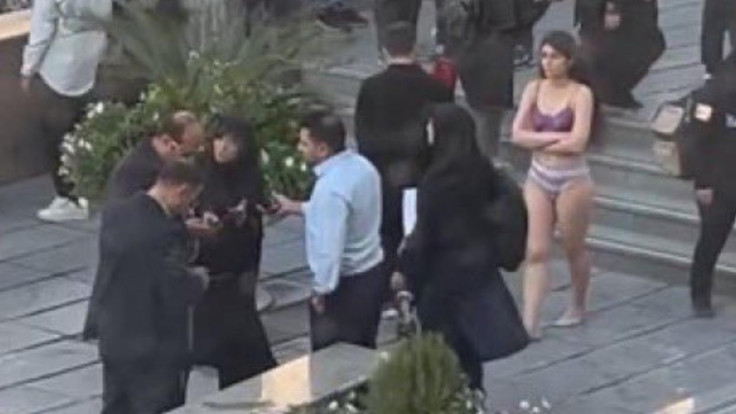Iranian Singer Parastoo Ahmadi Released From Jail After Performing Without a Hijab
Parastoo Ahmid was wearing a dress that exposed her shoulders and had foregone the obligatory hijab, defying Iran's new 'chastity law.'

Parastoo Ahmadi, a 27-year-old Iranian singer, was released from custody after her arrest for performing without a hijab during an online concert.
This act of defiance marked her as the first female Iranian singer to perform without a hijab since the Islamic Revolution of 1979.
Her performance, broadcast on YouTube, defied Iran's ban on the platform and garnered over two million views within a week.
Ahmadi's arrest occurred in the northern city of Sari, where Iranian authorities charged her and her band members with conducting an "illegal concert."
According to human rights activist Hossein Ronaghi, her arrest represented "an attack on the voice of the Iranian people."
Public backlash was swift, with activists and supporters demanding her release. Ahmadi's lawyer, Milad Panahipour, noted that her release just a day later signalled the regime's growing fear of public dissent.
A Performance of Defiance and Hope
The concert, which Ahmadi described as an "imaginary concert," was performed in a courtyard with only male band members present.
On her now-inaccessible Instagram page, she dedicated the performance to her "dear people" living under "difficult conditions."
She sang nine popular Persian songs, including protest anthems with lyrics that resonated with the struggles of the Iranian people.
One of the songs, a poignant protest piece, contained lines like "From the blood of the young people of the homeland, tulips have bloomed."
Her performance was not only a tribute to her country but also a bold statement against the oppressive laws restricting women's freedoms in Iran.
Iran's Harsh Crackdown on Women

Ahmadi's arrest follows the enforcement of Iran's controversial Law on Protecting the Family through the Promotion of the Culture of Chastity and Hijab.
The law imposes severe penalties, including flogging and even the death penalty, on individuals who oppose compulsory veiling laws.
For women, this law enforces strict dress codes, prohibiting tight clothing and revealing outfits.
This crackdown is not isolated. It follows the violent arrest of 30-year-old Ahoo Daryaei, a PhD student who protested the dress code by walking in public wearing only her underwear.
Daryaei's detention sparked widespread outrage, with many fearing she was tortured in custody. Her disappearance prompted a social media outcry under the hashtag "war against women."
A History of Defiance

Ahmadi's arrest also recalls the 2022 death of 22-year-old Mahsa Amini, who was detained for allegedly wearing an "improper hijab."
Amini's death ignited nationwide protests and led to over 500 deaths in a brutal government crackdown, according to the United Nations.
Analysts warn that further incidents like Ahmadi's arrest could destabilise the regime, which is already grappling with internal dissent and international pressures.
The Growing Resistance Movement
Iranian women have become symbols of resistance against the regime, with acts of defiance sparking global support and attention.
Ahmadi's release, while a temporary victory, highlights the broader struggle for women's rights and freedom in Iran.
Activists like Hossein Ronaghi continue to call on the international community and Iranian citizens to stand against oppression, insisting that the "voice of resistance" cannot be silenced.
© Copyright IBTimes 2025. All rights reserved.






















